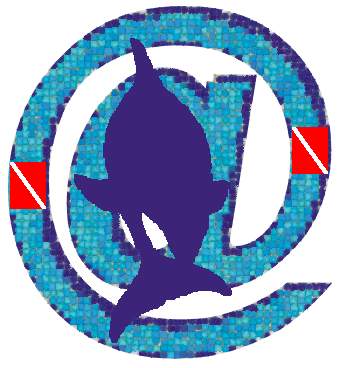 |
Intern@tion@l Dre@m.net |
 |
Intern@tion@l Dre@m.net |

By Samuel Shelanski, M.D.
It's Just a Bruise | Good Diving,Bad Luck | Is It DCS?
After several days of attending morning lectures and diving in the afternoon at
a weeklong DAN hyperbaric medicine course, our group of physicians, nurses and
health care professionals planned to visit the resort's hyperbaric facility.
When we gathered at the chamber after lunch, however, we were told that the
tour was canceled because the chamber was in use. A diver had gotten bent-a
doctor who was a member of our group.
What is your first reaction when you hear that a diver has decompression
sickness (DCS)? If you're like most people, you probably wonder what he did
wrong. Did he go too deep? Ascend too fast? Dive a reverse profile?
Unfortunately, this reaction
is all too common. Far too many divers believe that if you stay within the
tables or don't exceed the computer limits, then it is impossible to get bent.
While it's true that adhering to these limits dramatically reduces the risk of
getting decompression sickness, it doesn't eliminate the risk. Every time we
subject our bodies to the increased nitrogen load that we absorb at depth, we
run the risk of getting DCS.
It's true that in many cases of DCS, the diver is at least partly responsible,
whether accidentally or through purposeful pushing of the limits. But there's
another reason for our impulse to blame the diver: By assigning blame, we
reassure ourselves that if we comply with the limits, then it can't happen to
us.
This
attitude can cause a diver to ignore the signs and symptoms of DCS, and not
seek appropriate medical care. A diver may attribute a sore knee to a bang on
the ladder, even if he doesn't recall hitting his knee. It couldn't be the
bends, he tells himself, I stayed within the tables. Exhaustion is blamed on a
poor night's sleep or a late night at the bar, rather than to the possibility
of DCS.
The failure of divers to admit that they may have DCS is complicated by the
fact that many of the signs of Type I DCS are not very specific. If we were to
experience numbness or paralysis in an arm or leg two hours after diving or
collapse on the deck with an arterial gas embolism after a rapid ascent, few of
us would question that we had DCS. But it is much easier for divers to deceive
themselves when they have the nonspecific symptoms that often occur with Type I
DCS. (top)
For the
diver on our trip, admitting that he was bent was even more difficult. He was
at a course that included information on prevention and treatment of DCS. He was
surrounded by his peers, many of whom, even though they should know better,
still blame divers for getting bent. He later said that the hardest part of the
entire ordeal wasn't the pain of the DCS hit or the six-plus hours in the
chamber. It wasn't even realizing that he was a victim. The most difficult part
for him was admitting to the chamber director that he needed treatment.
"It was really embarrassing. I knew that I hadn't done anything wrong. I
had gone through my computer's log from the previous few days diving, and
hadn't even approached the no-deco limits on any dive. I knew that everyone
would assume that it was my fault, and I almost just toughed it out, wrote it
off as a muscle strain. But deep down I knew that I was bent, and good sense won
out."
In fact, he had done nothing wrong. His computer log showed that he had made
two dives a day during the previous three days, with the first dive around 90
feet and the second around 50 feet. All of his surface intervals were at least
one hour, and at no time had he violated either his no-deco times or his ascent
rate.
So why did he get a DCS hit? There are many variables that come into play that
don't show up on a dive computer. Some of these include dehydration, obesity,
physical fitness, age, water temperature and, to a small extent, luck. Any or
all of these may have contributed to this diver's attack. The important thing
is that not only did he recognize the fact that he had DCS, but that he was
brave enough to face the response of his fellow divers and receive appropriate
treatment.(top)
Relaxing at
the pool after a morning of diving, you notice a nagging ache in your shoulder.
Is it DCS or a muscle strain from lugging equipment around?
Answer these questions to help make that determination.
Clearly
these symptoms are not specific to DCS, so on to the next question.
